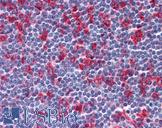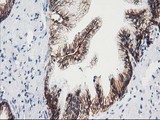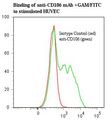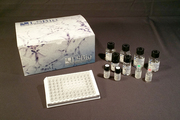Login
Registration enables users to use special features of this website, such as past
order histories, retained contact details for faster checkout, review submissions, and special promotions.
order histories, retained contact details for faster checkout, review submissions, and special promotions.
Forgot password?
Registration enables users to use special features of this website, such as past
order histories, retained contact details for faster checkout, review submissions, and special promotions.
order histories, retained contact details for faster checkout, review submissions, and special promotions.
Quick Order
Products
Antibodies
ELISA and Assay Kits
Research Areas
Infectious Disease
Resources
Purchasing
Reference Material
Contact Us
Locations
Orders Processing,
Shipping & Receiving,
Warehouse
2 Shaker Rd Suites
B001/B101
Shirley, MA 01464
Production Lab
Floor 6, Suite 620
20700 44th Avenue W
Lynnwood, WA 98036
Telephone Numbers
Tel: +1 (206) 374-1102
Fax: +1 (206) 577-4565
Contact Us
Additional Contact Details
Login
Registration enables users to use special features of this website, such as past
order histories, retained contact details for faster checkout, review submissions, and special promotions.
order histories, retained contact details for faster checkout, review submissions, and special promotions.
Forgot password?
Registration enables users to use special features of this website, such as past
order histories, retained contact details for faster checkout, review submissions, and special promotions.
order histories, retained contact details for faster checkout, review submissions, and special promotions.
Quick Order
| Catalog Number | Size | Price |
|---|---|---|
| LS-C5808-500 | 500 µg (0.5 mg/ml) | $543 |
Monoclonal Rat anti‑Mouse VCAM1 / CD106 Antibody (clone M/K‑2, Biotin) LS‑C5808
Monoclonal Rat anti‑Mouse VCAM1 / CD106 Antibody (clone M/K‑2, Biotin) LS‑C5808
Antibody:
VCAM1 / CD106 Rat anti-Mouse Monoclonal (Biotin) (M/K-2) Antibody
Application:
Flo
Reactivity:
Mouse
Format:
Biotin, Unmodified
Toll Free North America
 206-374-1102
206-374-1102
For Research Use Only
Overview
Antibody:
VCAM1 / CD106 Rat anti-Mouse Monoclonal (Biotin) (M/K-2) Antibody
Application:
Flo
Reactivity:
Mouse
Format:
Biotin, Unmodified
Specifications
Description
CD106 antibody LS-C5808 is a biotin-conjugated rat monoclonal antibody to mouse CD106 (VCAM1). Validated for Flow.
Target
Mouse VCAM1 / CD106
Synonyms
VCAM1 | CD106 | CD106 antigen | INCAM-100 | V-CAM 1 | VCAM-1
Host
Rat
Reactivity
Mouse
(tested or 100% immunogen sequence identity)
Clonality
IgG1,k
Monoclonal
Clone
M/K-2
Conjugations
Biotin
Purification
Purified
Modifications
Unmodified
Specificity
Recognizes CD106/VCAM-1 (~Mr 100kD).
Applications
- Flow Cytometry
Usage
Identification and enumeration of CD106 cells by flow cytometry. Identification of VCAM-1+ cells by immunofluorescence and immunohistochemical staining. Blockage of lymphocyte adhesion in Whitlock-Witte long-term bone marrow cultures. Inhibition of lymphopoiesis in Whitlock-Witte cultures. Immunoprecipitation. Flow Cytometry: 1 ug/1E6 cells. The applications listed have been tested for the unconjugated form of this product. Other forms have not been tested.
Presentation
PBS, Sodium Azide
Storage
Short term: store at 4°C. Long term: store at -20°C. Avoid freeze-thaw cycles.
Restrictions
For research use only. Intended for use by laboratory professionals.
About VCAM1 / CD106
Publications (0)
Customer Reviews (0)
Featured Products
Species:
Human
Applications:
IHC, IHC - Paraffin, Western blot, ELISA
Species:
Human, Monkey, Dog
Applications:
IHC, IHC - Paraffin, Immunofluorescence, Western blot
Species:
Human
Applications:
IHC, IHC - Frozen, Western blot, Flow Cytometry, ELISA
Species:
Human
Applications:
IHC, Western blot, Flow Cytometry, ELISA, Functional Assay
Species:
Mouse
Applications:
IHC, IHC - Frozen, Immunofluorescence, Immunoprecipitation, Flow Cytometry, Functional Assay
Request SDS/MSDS
To request an SDS/MSDS form for this product, please contact our Technical Support department at:
Technical.Support@LSBio.com
Requested From: United States
Date Requested: 4/25/2024
Date Requested: 4/25/2024













